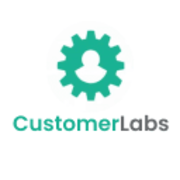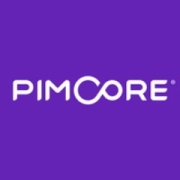Customer Data Platforms (CDP) are specialized systems designed to consolidate and manage customer data from multiple sources, creating a unified customer profile. These platforms enhance customer interactions by utilizing centralized data for more personalized experiences.
Customer Data Platforms play a crucial role in unifying customer data, enabling businesses to provide more personalized engagement. By centralizing data from varied sources, CDPs offer organizations a comprehensive view of their customers, which is imperative for strategic decision-making and marketing efforts. This helps in crafting targeted campaigns and improving customer loyalty.
What features should you consider when evaluating solutions?CDPs are implemented in industries like retail for personalized marketing, finance for compliance and customer insights, and healthcare for managing patient data. They optimize industry-specific goals by leveraging detailed customer information.
CDPs are helpful for organizations seeking to improve customer interaction and data-driven marketing strategies. By integrating and analyzing customer data, these platforms enable businesses to understand and meet customer needs efficiently.
| Product | Market Share (%) |
|---|---|
| Segment | 12.5% |
| Hightouch | 6.4% |
| Netcore Customer Engagement Platform | 5.5% |
| Other | 75.6% |


































































CDPs offer advanced tools for customer segmentation by aggregating data from multiple touchpoints across the customer journey. You can leverage this unified data to create detailed profiles, allowing for precise segmentation based on behavior, demographics, and purchase history. This capability enables personalized marketing strategies and increases engagement rates.
What are the best practices for integrating a CDP with existing tech stacks?Integrating a CDP with your existing tech stack requires a clear understanding of your data sources and objectives. Begin with a comprehensive audit of your current systems to identify integration points. Collaborate closely with IT and marketing teams to ensure seamless data flow. Utilize APIs and connectors provided by the CDP to facilitate integration, keeping an eye on data privacy compliance at every step.
How does a CDP improve data privacy and compliance?CDPs help improve data privacy and compliance by centralizing customer data with strict governance protocols. They offer features such as consent management and data masking to ensure you handle customer data responsibly. By maintaining an auditable data trail and providing tools for data anonymization, CDPs help you align with regulations like GDPR and CCPA, mitigating compliance risks.
What role does machine learning play in Customer Data Platforms?Machine learning enhances the capabilities of CDPs by enabling predictive analytics and real-time decision-making. You can use machine learning algorithms to identify patterns within customer data, anticipate future behaviors, and automate personalized experiences. This advanced analytics capability allows you to optimize marketing efforts and improve customer interactions.
How can a CDP drive improved ROI for marketing campaigns?A CDP drives improved ROI by providing a comprehensive view of customer interactions, facilitating more informed marketing decisions. By optimizing targeting strategies and personalizing interactions, you can increase conversion rates and customer loyalty. Additionally, CDPs enable budget optimization by identifying high-impact channels and reducing spend on ineffective tactics, thereby maximizing your marketing investment.